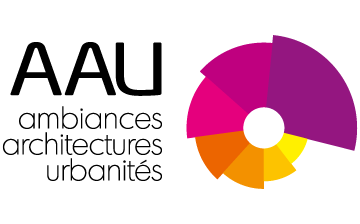Ce que l’écoféminisme peut faire à l’architecture
What ecofeminism means for architecture
Marine Buerle Thèse de doctorat débutée en 2024
Encadrement : Co-encadrée par Mathias Rollot (AAU-CRESSON) et Emeline Curien (ENSA Nancy)
Financement : Ministère de la Culture
FR
De la séparation opérée entre le travail de production et celui de reproduction, qui renvoie plus largement à la dichotomie des sphères publiques et privées, nous avons hérité d'une profonde mutation de nos espaces et de leurs structures. Qu'il s'agisse de l'échelle architecturale ou urbaine, cette division canonise l'expression d'une pensée distinguant le naturel du culturel, la femme de l'homme, le non-humain/humain, émotions/raison, collectif/individuel, etc. Ce projet de doctorat en architecture travaille à déconstruire et dépasser ces dualismes établis par la philosophie moderne occidentale ; c'est en ce sens qu'il contribue à mesurer ce que les théories écoféministes (travaillant précisément à cela) peuvent pour l'architecture. Pour cela, ce travail portera sur la transformation de l'héritage pavillonnaire de la deuxième moitié du XXe siècle, en interrogeant depuis les perspectives écoféministes, ses qualités d'espace à la fois urbain et rural, ses qualités de lieu du travail de reproduction, et les différents systèmes de relations qui façonnent « l'espace pavillonnaire [en tant que] l'espace de la maison individuelle, de sa parcelle et de ses espaces proches » (NOWAKOWSKI, 2022). Des enquêtes de terrains seront ainsi réalisées à travers des entretiens et relevés cartographiques, mais engageront aussi des méthodologies plus spécifiques au domaine d'étude évoqué tels que les critical spatial pratices (RENDELL, 2003). Issu d'une urbanisation expansive poussée par l'essor de la voiture individuelle et de l'énergie bon marché, ce modèle gourmand en espace s'est largement installé sur des terres agricoles. Caractéristiques de l'urbanisme sectorisé, ces quartiers et leurs habitant·e·s font aujourd'hui les frais de cet éloignement (CHARMES, 2021), et ainsi de la séparation entre espaces dédiés au travail de production et ceux dédiés au travail domestique héritée de cette pensée. Le travail de thèse qui s'annonce fait alors l'hypothèse qu'une possible voire nécessaire reconnexion de ces espaces autour des quotidiens pavillonnaires, permettrait de renouveler les stratégies et pratiques de rénovation de l'héritage pavillonnaire. Il s'agirait de remettre au travail le champ de réflexion déjà constitué par les théories féministes en architecture autour du domestique (DADOUR, 2013 ; DADOUR, 2022), avec le prisme écoféministe proposant une relecture de cet espace comme un espace naturalisé et donc à ce titre dévalorisé, exploité. Proposant de déconstruire les imaginaires portés sur et par le modèle pavillonnaire, l'étude ébauchera alors une nouvelle cartographie des discours, des pratiques et des pouvoirs d'actions autour des quotidiens pavillonnaires destinés à accompagner la transformation de ces tissus hérités de la deuxième moitié du XXème siècle.
Mots-clés : architecture, urbanisme, ecoféminisme, habitat pavillonnaire, études des genres, écologie.
EN
The separation made between production and reproduction work, which more broadly refers to the dichotomy of public and private spheres, has led to a profound transformation of our spaces and their structures. Whether on an architectural or urban scale, this division canonizes a way of thinking that distinguishes natural from cultural, woman from man, non-human/human, emotions/reason, collective/individual, and so on.
This PhD in architecture aims to deconstruct and go beyond these dualisms established by modern western philosophy; in this sense, it contributes to measuring what ecofeminist theories mean for architecture. To this end, this work will focus on the transformation of the suburban heritage of the second half of the 20th century, examining from an ecofeminist perspective, its qualities as both urban and rural space, its qualities as a place of work of reproduction, and the different systems of relations that shape « suburban space [as] the space of the individual house, its plot and its surrounding spaces » (NOWAKOWSKI, 2022). Investigations will thus be carried out through interviews and cartographic surveys but will also engage methodologies more specific to the field of study evoked, such as critical spatial practices (RENDELL, 2003).
As the result of an expansive urbanization driven by the rise of the private car and cheap energy, this space-hungry model has largely settled on farmland. Characteristic of sectorized urbanism, those neighbourhoods and their residents are now paying the price of this remoteness (CHARMES, 2021), and thus of the separation between spaces dedicated to – production – work and those dedicated to domestic – work – inherited from this philosophy. The hypothesis of this PhD project is that a possible, indeed necessary, reconnection of these spaces around the daily life of suburban dwellers would enable us to renew the strategies and practices for renovating the suburban heritage. The aim would be to examine again the field of reflection already constituted by feminist theories in architecture around the domestic (DADOUR, 2013; DADOUR, 2022), with the ecofeminist prism proposing a new reading of this space as a naturalized space and therefore, as such, devalued and exploited.
Proposing to deconstruct the imaginaries carried on and by the suburban model, the study will then sketch out a new cartography of discourses, practices and powers of action around suburban everyday living conditions intended to accompany the transformation of these fabrics inherited from the second half of the 20th century.
Keywords: architecture, urbanism, ecofeminism, suburbs, genders studies, ecology.
